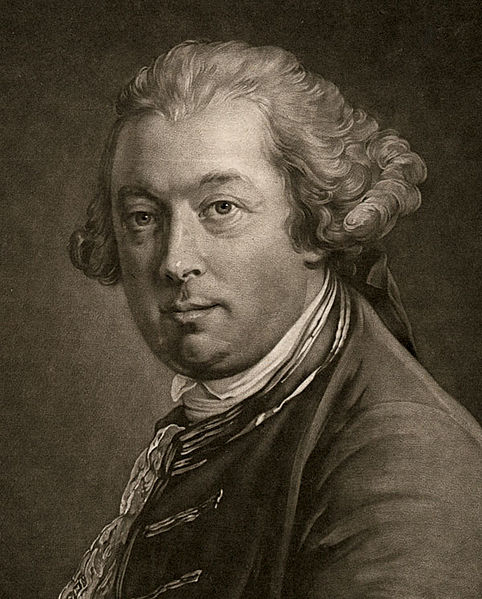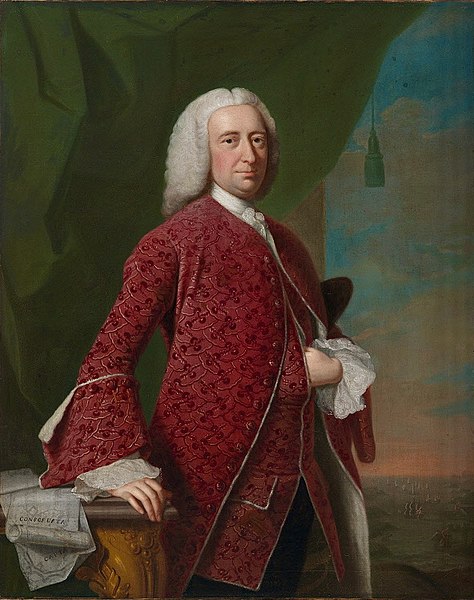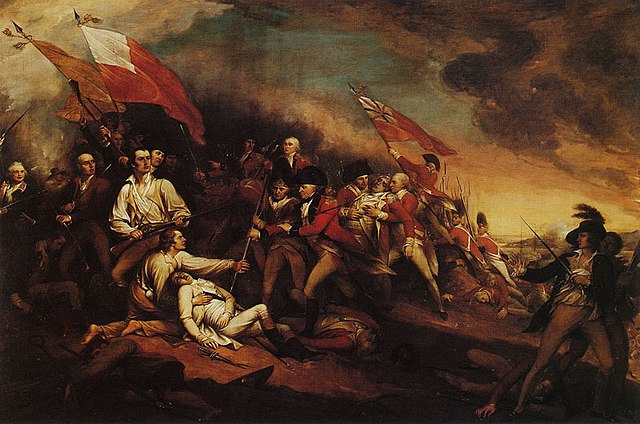Thomas Pownall was a British colonial official and politician. He was governor of the Province of Massachusetts Bay from 1757 to 1760, and afterwards sat in the House of Commons from 1767 to 1780. He travelled widely in the North American colonies prior to the American Revolutionary War, opposed Parliamentary attempts to tax the colonies, and was a minority advocate of colonial positions until the Revolution.
Thomas Pownall
William Shirley was unseated as Massachusetts governor in part by Pownall's actions.
Pownall's drawing of the Passaic River's Great Falls
Pownall had a sometimes-contentious relationship with John Campbell, 4th Earl of Loudoun.
Province of Massachusetts Bay
The Province of Massachusetts Bay was a colony in New England which became one of the thirteen original states of the United States. It was chartered on October 7, 1691, by William III and Mary II, the joint monarchs of the kingdoms of England, Scotland, and Ireland, and was based in the merging of several earlier British colonies in New England. The charter took effect on May 14, 1692, and included the Massachusetts Bay Colony, the Plymouth Colony, the Province of Maine, Martha's Vineyard, Nantucket, Nova Scotia, and New Brunswick; the Commonwealth of Massachusetts is the direct successor. Maine has been a separate state since 1820, and Nova Scotia and New Brunswick are now Canadian provinces, having been part of the colony only until 1697.
A 1773 lithograph of the Boston Tea Party
John Trumbull's 1834 portrait of Joseph Warren's death at the Battle of Bunker Hill






